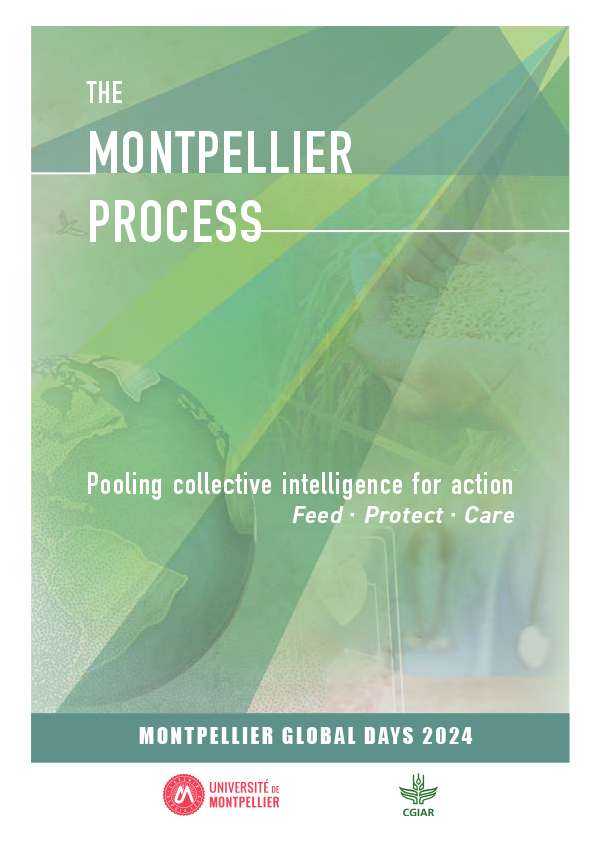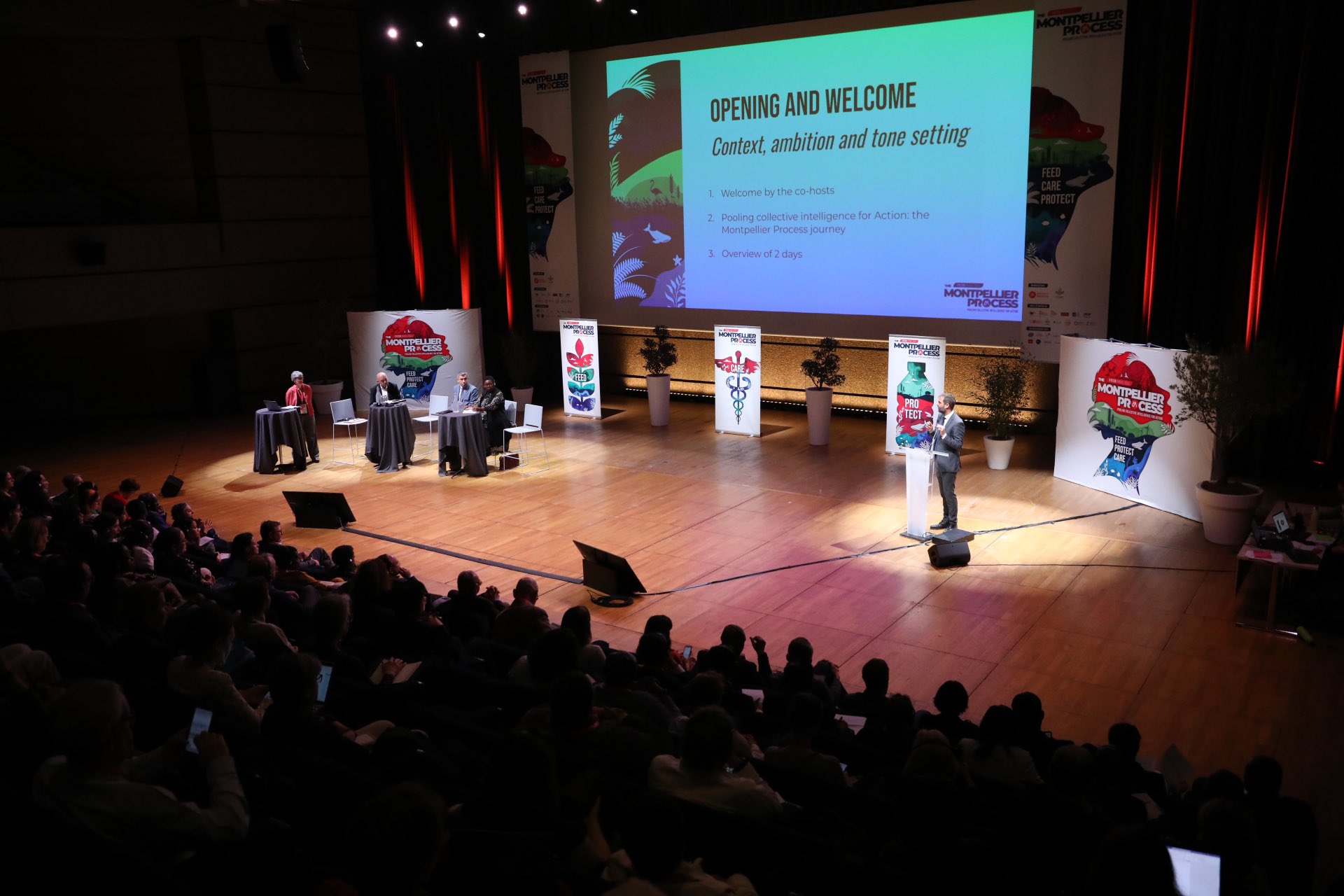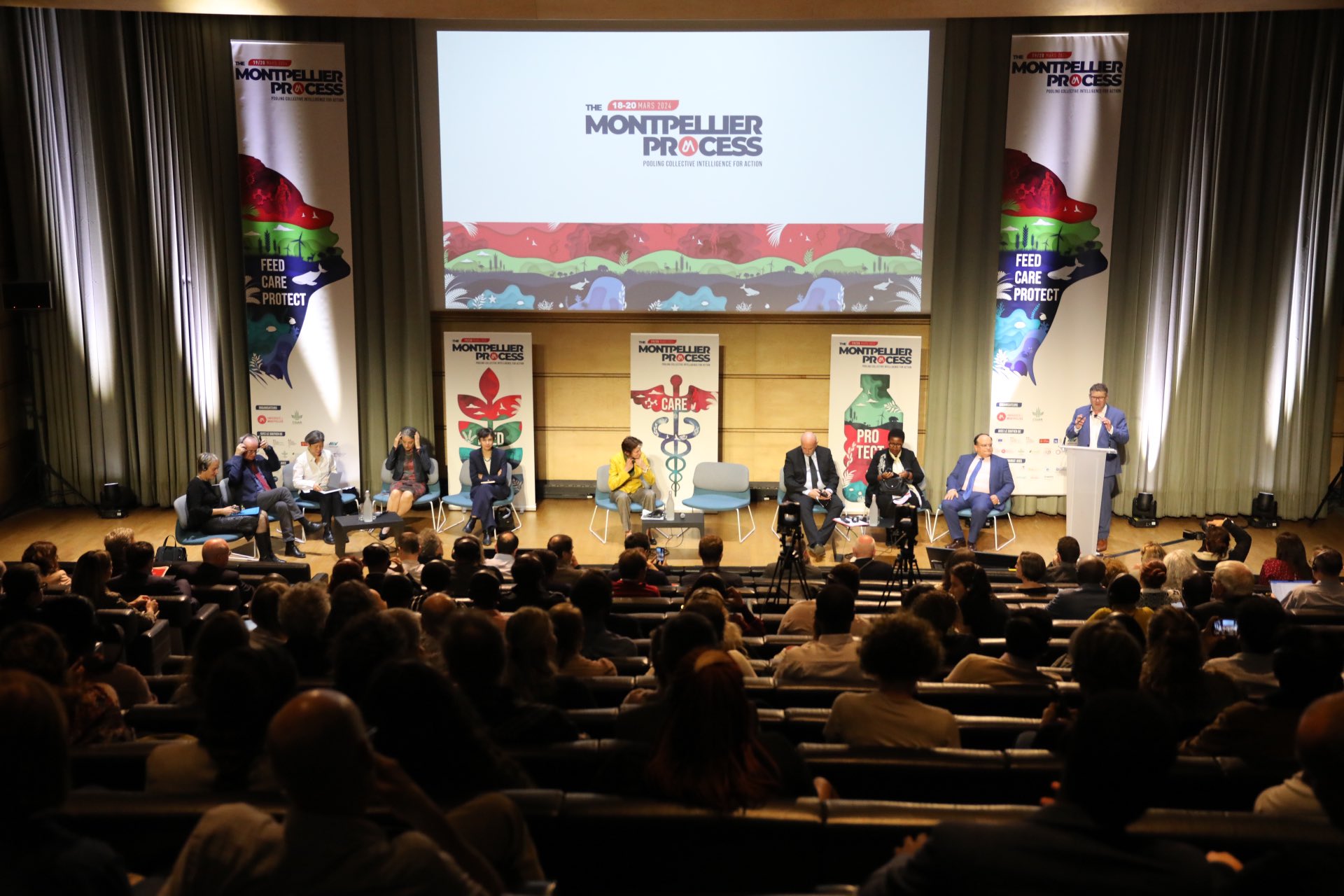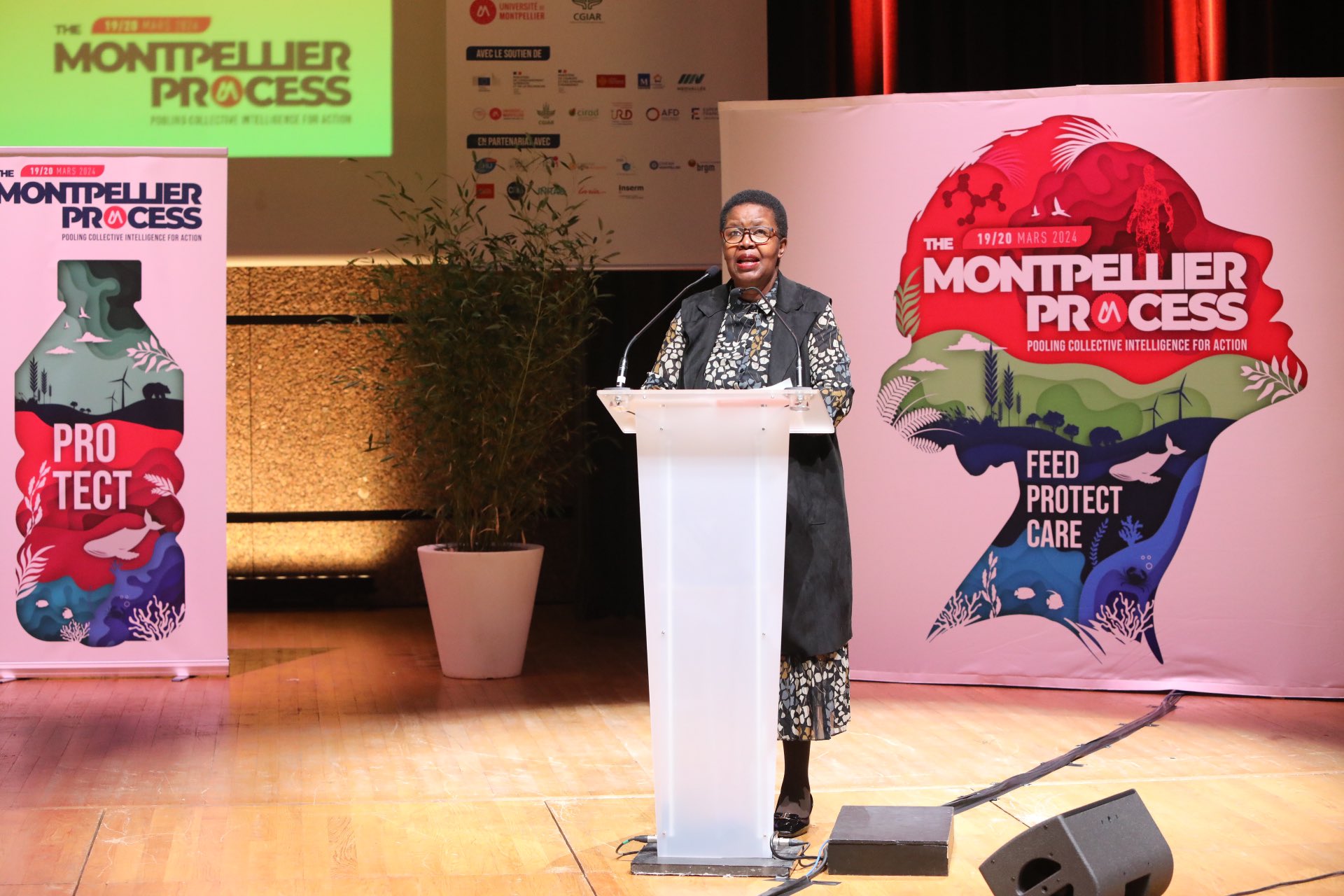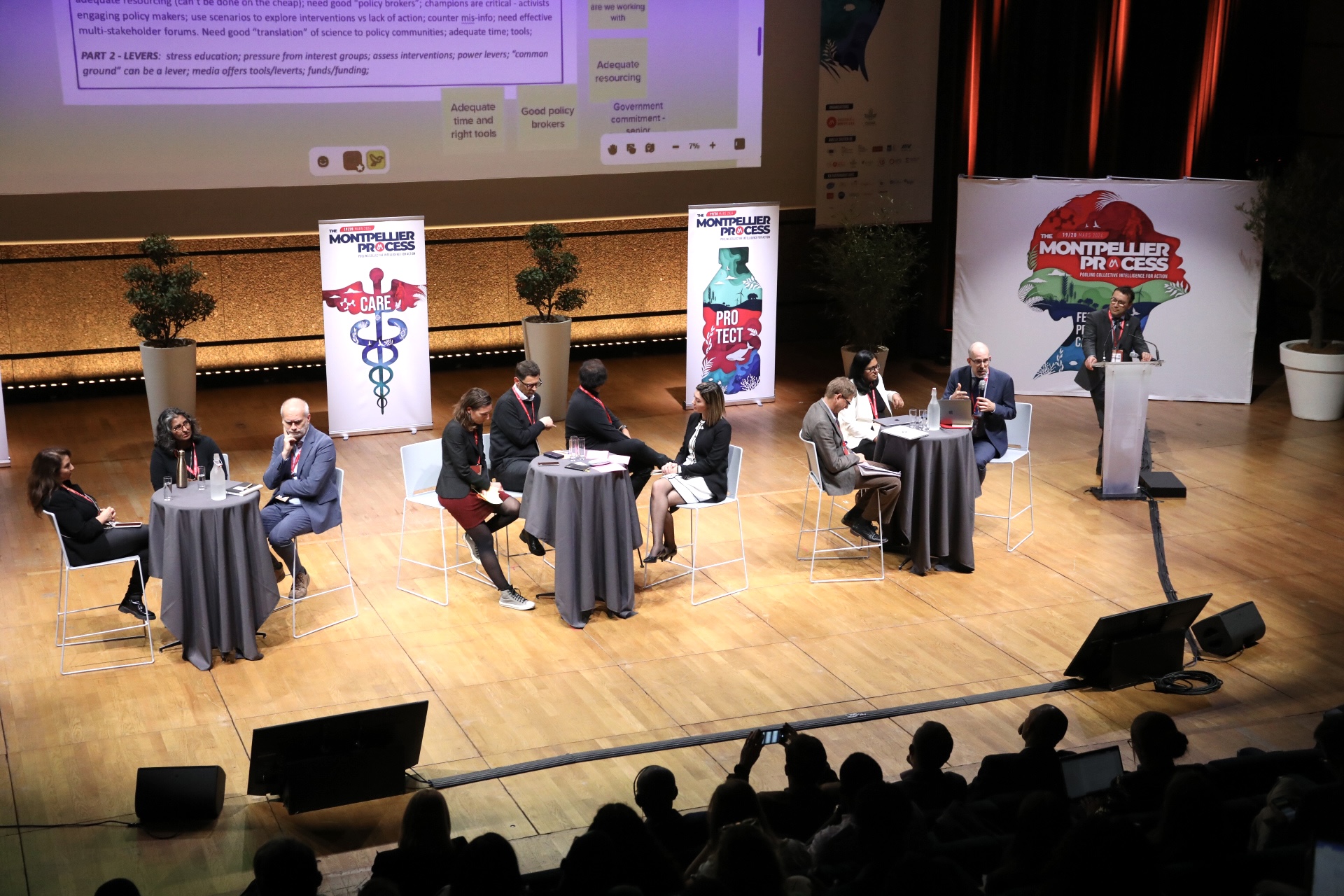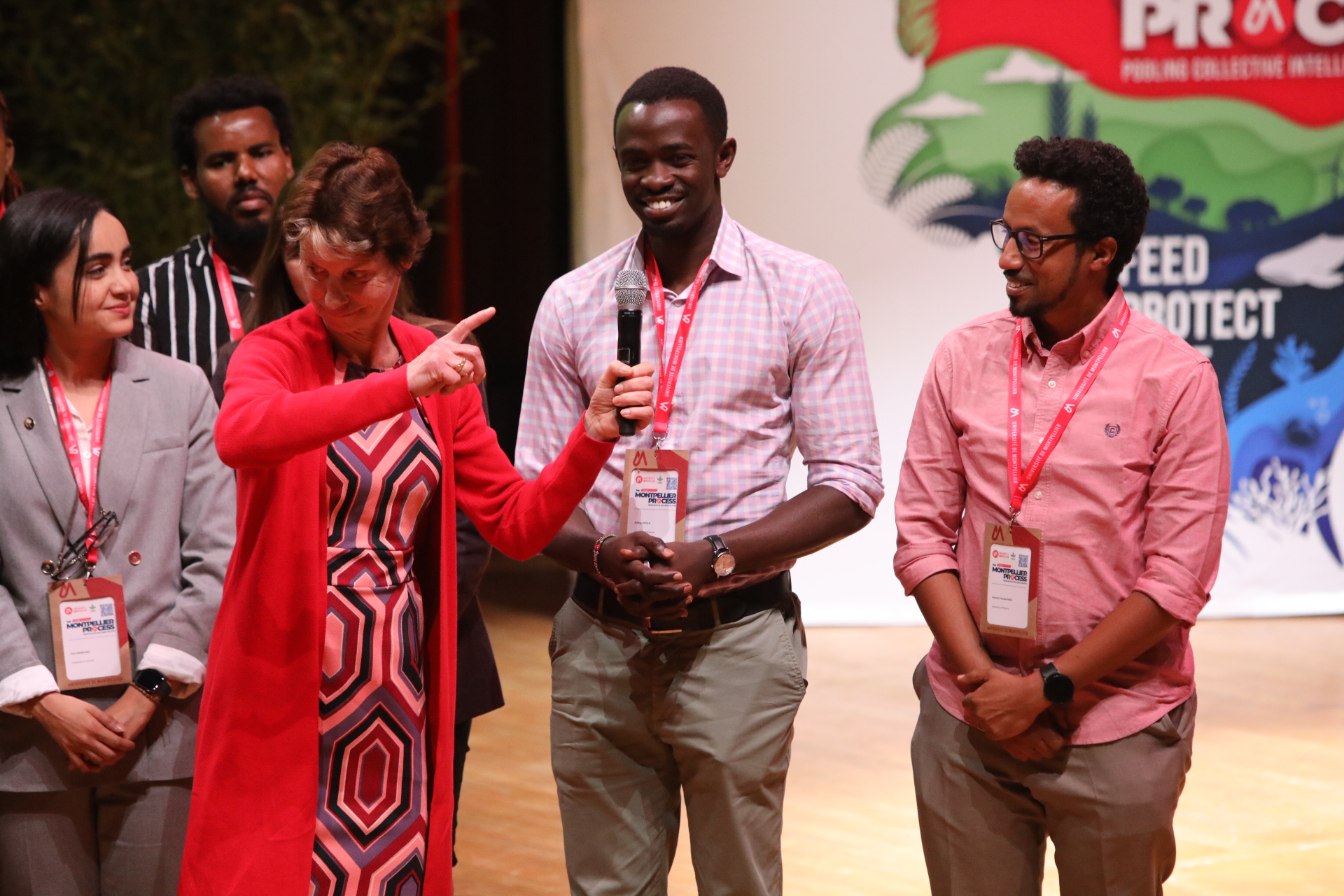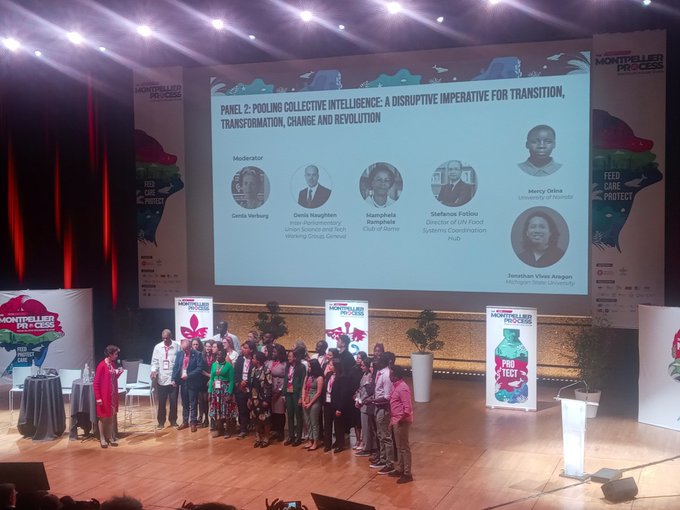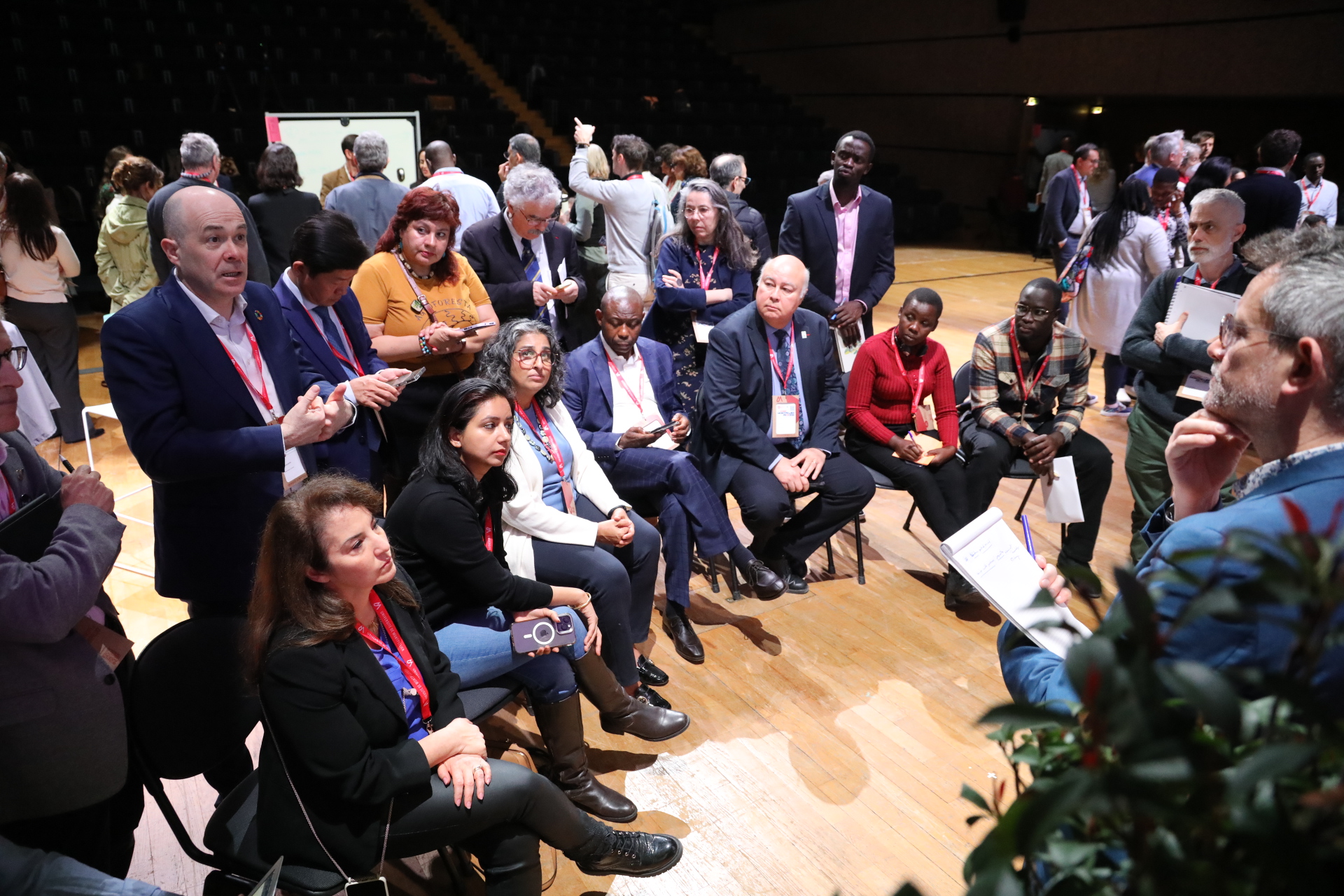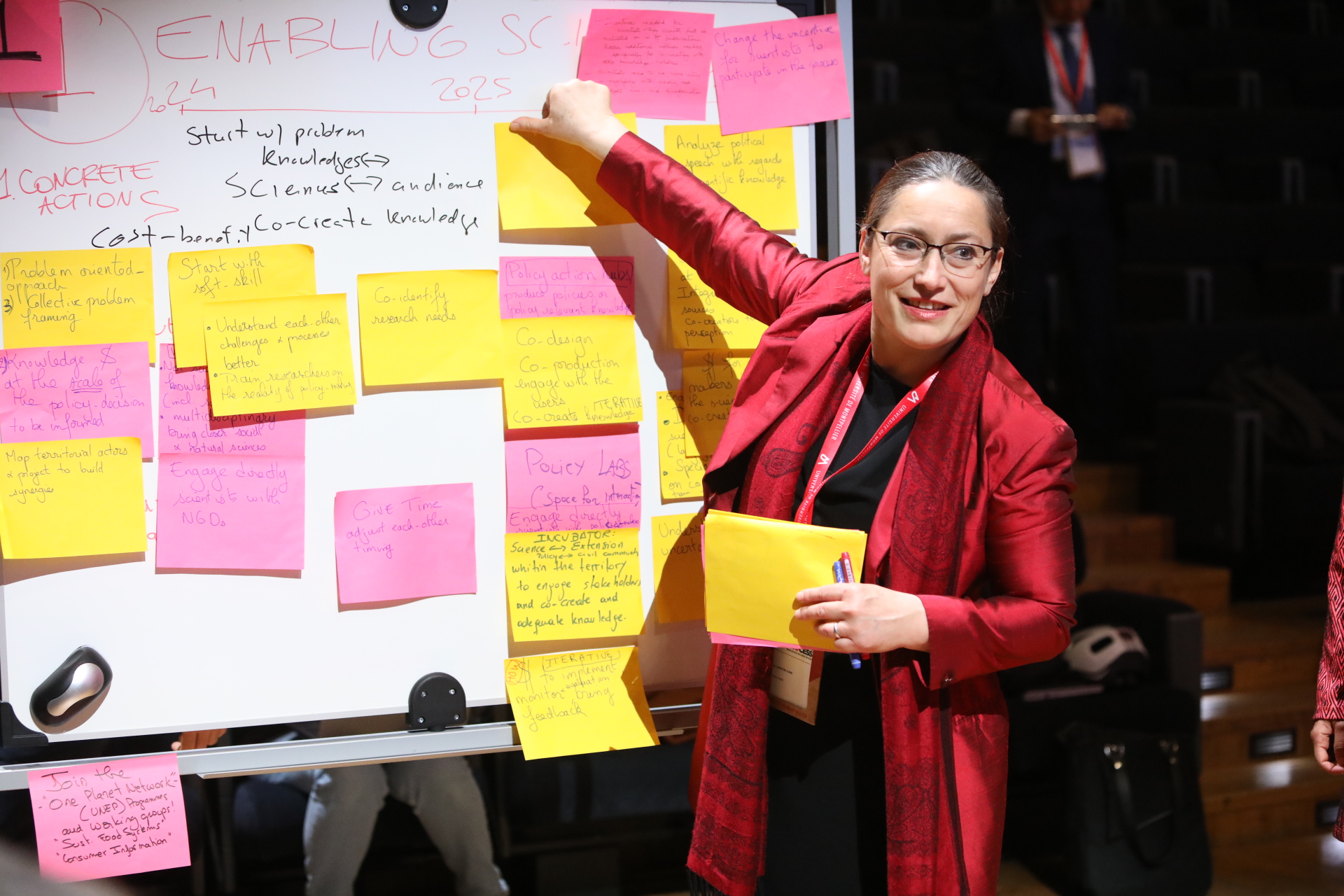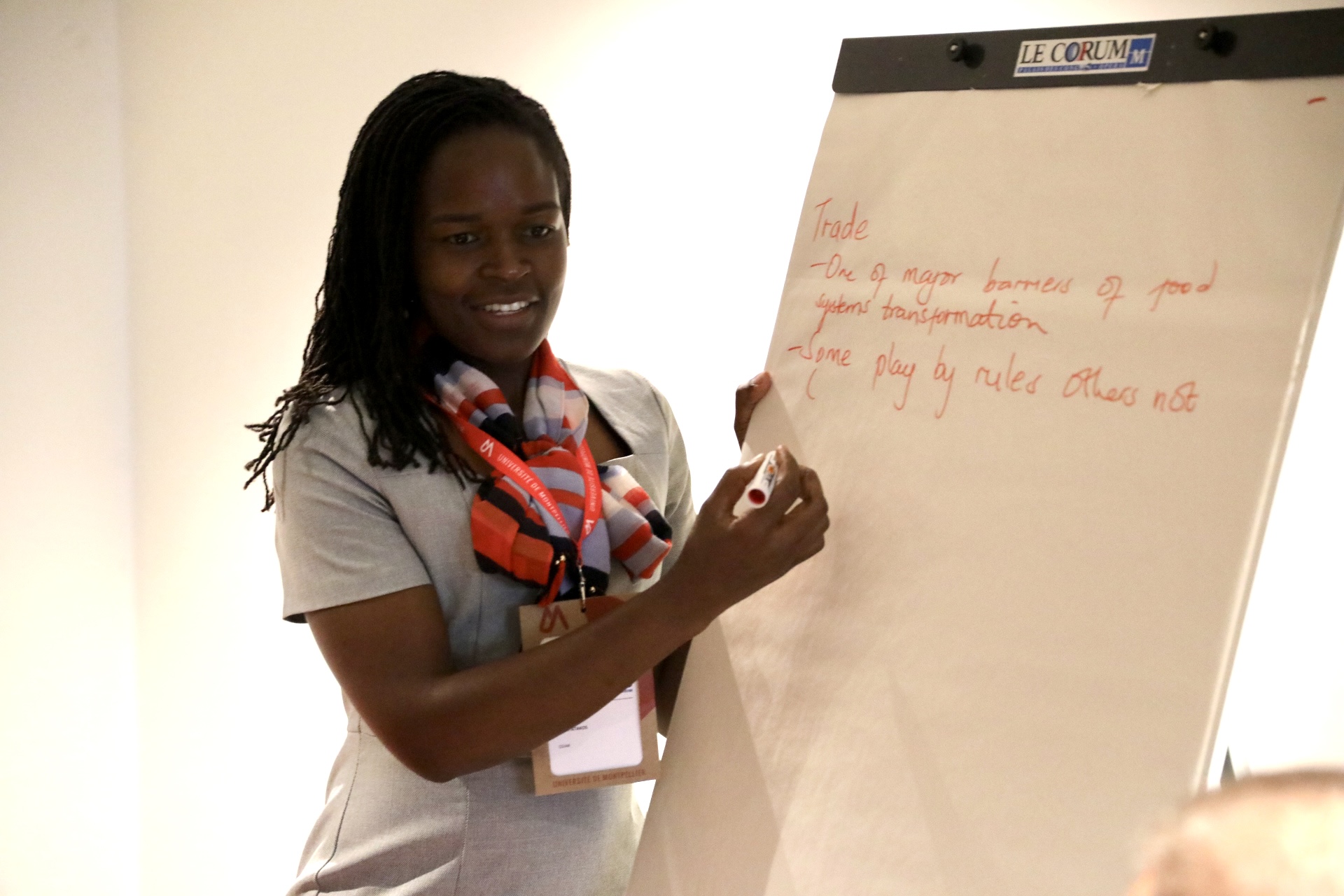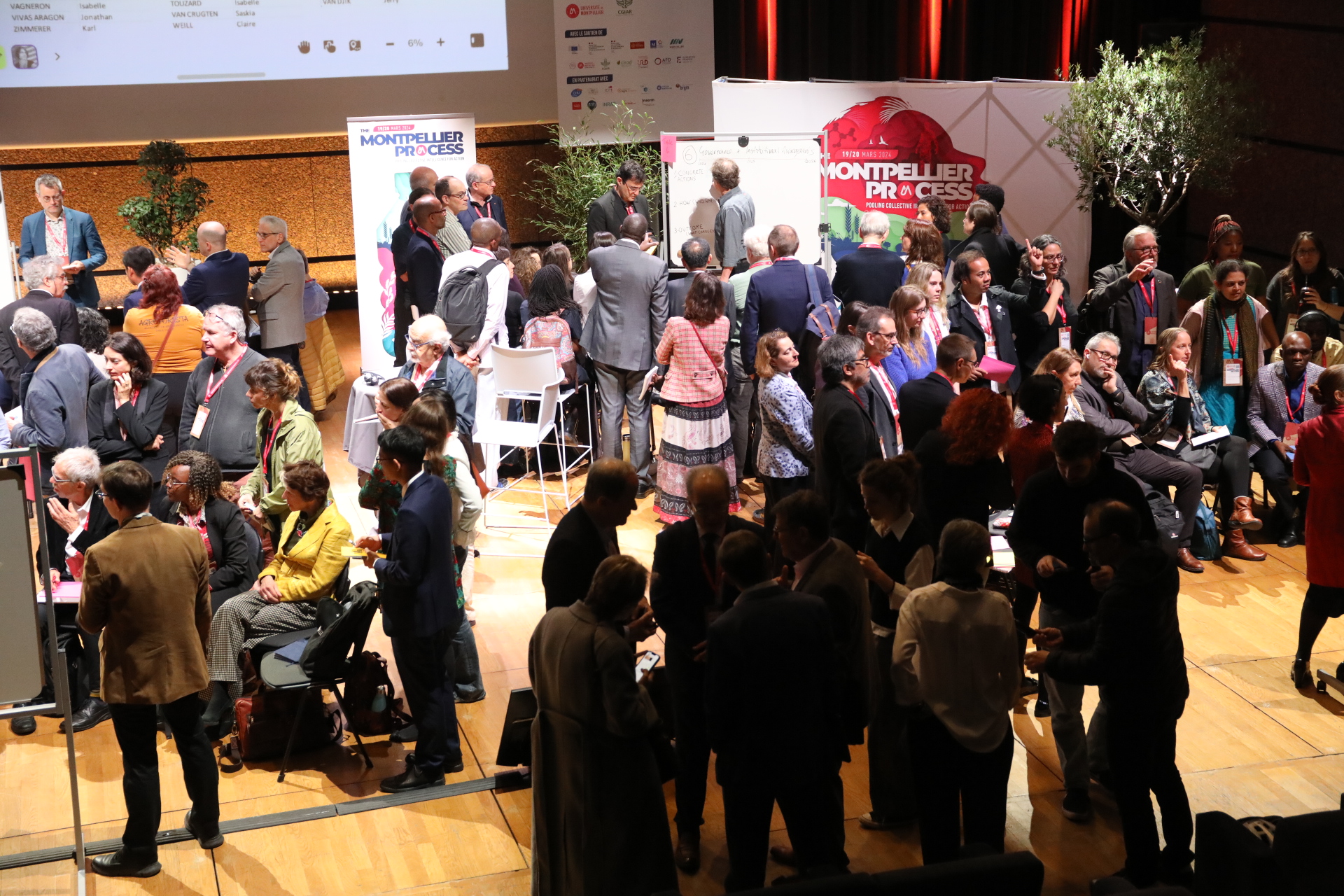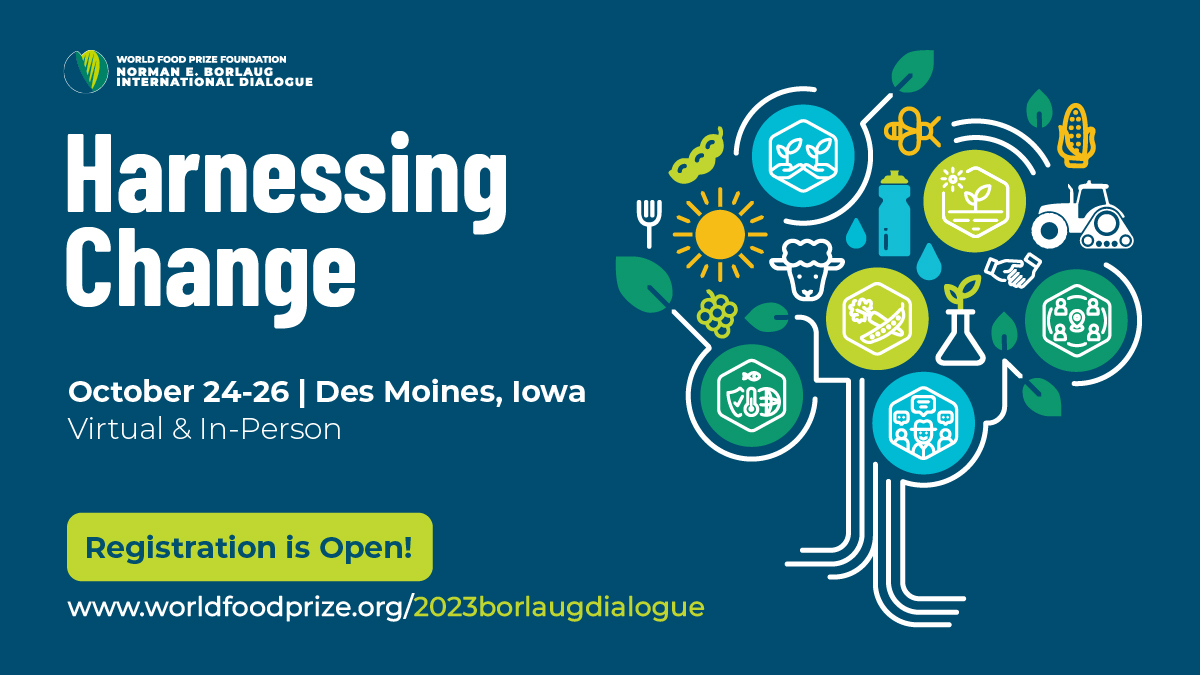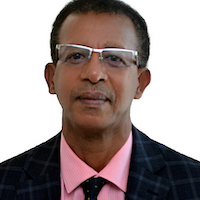27-29 May 2025. Brasilia, Brazil. With its 5th global conference, the One Planet Network’s Sustainable Food Systems Programme intended to make a substantial contribution to inspire and encourage policymakers to take bold decisions in the key policy fora in 2025, such as the UNFSS+4 Stocktaking Moment and UNFCCC COP30.
The main theme was: "Overcoming the Barriers to Food Systems Transformation - Coherent Policies and Equity-sensitive Solutions to Simultaneously Fight Hunger and Malnutrition, Biodiversity Loss and the Climate Crisis".
This conference showcased concrete solutions, policies and actions to address political economy barriers at the intersection of food systems, nutrition, climate, biodiversity, livelihoods, equality and other related policy agendas, that can be adapted and replicated in different contexts.
Day 1
Plenary Session 2: Systems-based and equity-driven strategies to address political economy dynamics
- H.E. José Wellington Barroso de Araújo Dias, Minister for Social Development and Assistance, Family and Fight Against Hunger, Brazil
- H.E. Christian Hofer, State Secretary for Agriculture, Switzerland
- H.E. Henry Musa Kpaka, Minister of Agriculture and Food Security, Sierra Leone
- H.E. Paul Gulleik Larsen, Ambassador-at-large & Special Envoy, Ministry of Foreign Affairs, Norway
- H.E. Ambassador Nosipho Nausca-Jean Jezile, Chairperson, UN Committee on World Food Security
- Joao Campari, Global Leader, Food & Agriculture Practice, WWF International
- Myrna Cunningham, President, Center for Autonomy and Development of Indigenous Peoples
- Arilson Favareto, Full Professor of the Josué de Castro Chair of Healthy and Sustainable Food Systems, University of São Paulo
- Adriana Lobo Castellón, Head of the International Cooperation Office of the Ministry of Agriculture and Livestock, Costa Rica
- Elisabetta Recine, Former President, National Food and Nutrition Security Council (CONSEA) of Brazil, member of IPES-Food
- Máximo Torero Cullen, Chief Economist, Food and Agriculture Organization of the United Nations (FAO)
- Walter Belik, Professor, University of Campinas in São Paulo
- Chris Béné, Senior Policy Advisor and Principal Scientist, Alliance of Bioversity International and the International Centre for Tropical Agriculture (CIAT)
- Diva Dessai, Influencing Manager & Senior Policy Advisor (Nutrition and Food Systems), GAIN Mozambique Samuel Jose Hino, Thematic Focal Point of Green Economy and Resources, Children and Youth Major Group to UNEP
- Yessika Hoyos, Member of CAJAR, José Alvear Restrepo Lawyers’ Collective (CAJAR)
- James Leslie, Global Programme Manager, Food Systems, United Nations Development Programme (UNDP)
- Rodrigo Orair, Director, Extraordinary Secretary for Tax Reform, Ministry of Finance, Brazil
Solutions Workshop 1: Addressing trade-offs and maximizing co-benefits
- José Graziano da Silva, Director, Instituto Fome Zero (IFZ)
- Lee Ann Jackson, Head of the Agro-Food Trade and Markets Division, Organisation for Economic Co-operation and Development (OECD)
- Allison Loconto, Research Professor, INRAE
- Bakari Mongo, CEO, Tanzanian Organic Agriculture Movement (TOAM)
- Tebila Nakelse, Research Professor, Virginia Tech
- Balance Phala, Sustainable Food Systems Officer, ICLEI
- Juliana Tangari, Director, Comida do Amanhã Institute
Solutions Workshop 2: Leveraging the power of social protection, food procurement and school
meals for improved farmer livelihoods, healthy diets, climate and biodiversity
- Betina Bergmann Madsen, Chief Procurement Officer, Municipality of Copenhagen
- Marcos Vinicius Dias Nunes, Vice President and Secretary of International Relations, National Confederation of Rural Family Farmers – CONTAG
- Amos Laar, Professor of Public Health Nutrition, University of Ghana
- Renata Mainenti Gomes, Coordinator, National Fund for Educational Development, Brazil
- Nguyen Thi Ngoc Huyen, Youth sustainability advocate and social entrepreneur, Children and Youth Major Group to UNEP
- Angie Katherine Roncancio Sánchez, Environmental Administrator, Ministry of Environment and Sustainable Development, Colombia
- Luana Swensson, Policy specialist for sustainable public procurement, Food and Agriculture Organization of the United Nations (FAO)
- Ana Terra Reis, Secretary of Supply, Cooperativism and Food Sovereignty, Ministry of Agrarian Development and Family Farming, Brazil
- Najla Veloso, Executive Secretary, Latin American Sustainable School Feeding Network (RAES), Food and Agriculture Organization of the United Nations (FAO)
- Anthony Wenndt, Technical Officer, Global Alliance for Improved Nutrition (GAIN)
Day 2
Plenary Session 3: Convergence and coherence: aligning policies and actions on climate, biodiversity, inequalities and nutrition through the food systems nexus
- Karima Ahmed Al-Hada’a, Planning & Liaison Specialist, Ministry of Planning & International Cooperation, Yemen
- Cherrie Atilano, Founder and CEO, AGREA Agricultural Systems International
- Patrick Caron, Researcher, CIRAD
- Agnes Kirabo, Executive Director, Food Rights Alliance & Chairperson, Scaling Up Nutrition Civil Society Network in Uganda
- Alwin Kopše, National Convenor, Head of International Affairs, Federal Office for Agriculture, Switzerland
- David Nabarro, Strategic Director, 4SD Foundation
- Lilian Rahal, Secretary of Food and Nutrition Security at the Ministry of Development and Social Assistance, Family, and the Fight Against Hunger, Brazil
- Jose Valls Bedeau, Policy Officer, Food and Agriculture Organization of the United Nations (FAO)
Solutions Workshop 3: Scaling Finance for NBSAPs and NDCS towards Food Systems Transformation: Exploring Solutions from the Global North & South
- H.E. Christian Hofer, State Secretary for Agriculture, Switzerland
- H.E. Henry Musa Kpaka, Minister of Agriculture and Food Security, Sierra Leone
- Haseeb Bakhtary, Lead Scientist, Climate Focus
- Oliver Camp, Environment and Food Systems Advocacy Advisor, Global Alliance for Improved Nutrition (GAIN)
- Joao Campari, Global Leader, Food & Agriculture Practice, WWF International
- Tereza Campello, Socio-environmental Director, Banco Nacional de Desenvolvimento Econômico e Social (BNDES)
- Wendy Francesconi, Senior Scientist, Alliance of Bioversity International and the International Centre for Tropical Agriculture (CIAT)
- Adriana Lobo Castellón, Head of the International Cooperation Office of the Ministry of Agriculture and Livestock, Costa Rica
- Liban Mahad Abdullahi, Green Economy and Resources Working Group, Thematic Facilitator, Children and Youth Major Group to UNEP
- Gonzalo Muñoz, High-level Champion, Ambition Loop • Orsayla Nyarai, International Union for Conservation of Nature (IUCN)
- Maya Rajasekharan, Managing Director for the Americas, Alliance of Bioversity International and CIAT and Director General CIAT
Solutions Workshop 4: Multi-stakeholder Mechanisms for Food Systems Transformation
- Tulsi Giri, Co-creator of Food Networks and Social Entrepreneur, Food Networks
- Ceres Hadich, National Coordinator, Movimento dos Trabalhadores Rurais sem Terra (MST)
- Agnes Kirabo, Executive Director, Food Rights Alliance & Chairperson, Scaling Up Nutrition Civil Society Network in Uganda
- Alwin Kopše, National Convenor, Head of International Affairs, Federal Office for Agriculture, Switzerland
- Beatriz Martins Carneiro, Food Systems Coordinator, Regional Office LAC, United Nations Environment Programme (UNEP)
- Elisabetta Recine, former President, National Food and Nutrition Security Council (CONSEA) of Brazil, member of IPES-Food
- Ana Maria Suarez Franco, Secretary General, FIAN International
- Jose Valls Bedeau, Policy Officer, Food and Agriculture Organization of the United Nations (FAO)
- Anthony Wenndt, Social Protection Lead, Global Alliance for Improved Nutrition (GAIN)
Day 3
Plenary Session 4: Measuring progress and promoting accountability mechanisms for food systems transformation Solutions Workshop 5: Linking food systems policies with biodiversity, nutrition and climate
- Abdoulaye Falla, Director of Statistics of the Ministry of Agriculture, Niger • Alejandro Guarin, Food Systems Transformation Lead, World Benchmarking Alliance
- Thin Lei Win, Journalist, Lead Reporter for the Food Systems Newsroom of Lighthouse Reports & Thin Ink
- Hugo Melgar-Quiñonez, Associate Professor, McGill University
- Stella Nordhagen, Research Lead, Global Alliance for Improved Nutrition (GAIN)
- Sergio Schneider, Full Professor of Sociology of Rural Development and Food Studies, Federal University of Rio Grande do Sul
- Maria Siqueira, Director, Pact Against Hunger
Solutions Workshop 5: Linking food systems policies with biodiversity, nutrition and climate
- Bambot Grace Annih, National Convenor, Secretary General, Ministry of Agriculture and Rural Development
- Oliver Camp, Environment and Food Systems Advocacy Advisor, GAIN
- Maria Verônica de Santana, Northeastern Rural Worker’s Movement (MMTR-NE), Brazil
- Patricia Gentil, Director of Ministry of Social Development, Family, and the Fight Against Hunger (MDS)
- Karla Vanessa González Moreno, Farmer and active member of the Chamber of Livestock Producers of Nandayure, Costa Rica
- Alwin Kopše, National Convenor, Head of International Affairs, Federal Office for Agriculture, Switzerland
- David Nabarro, Strategic Director, 4SD Foundation
- Elisabetta Recine, former President, National Food and Nutrition Security Council (CONSEA) of Brazil, member of IPES-Food
- Fredrick Edward Walugembe, Chairperson, National Food Systems Coordination Committee, Uganda
- Truong Tuyet Mai, Food Systems National Convenor for Viet Nam & Vice- Director of the National Institute of Nutrition, Ministry of Health, Viet Nam
- Eduardo Sfoglia, Head of International Advisory Ministry of Fisheries and Aquaculture, Brazil
- João Paulo Pucciariello Perez, Executive Secretary for Food Security and Sustainability, Municipality of Osasco, State of Sao Paulo
Key Themes and Outcomes
- Addressing Political Economy Barriers. Participants examined how entrenched power structures, policy lock-ins, and geopolitical tensions hinder the implementation of sustainable food systems. The conference emphasized the need for equity-sensitive solutions that address these challenges, including adopting a Right to Food approach and promoting coherent implementation of nutrition, climate, biodiversity, and other relevant commitments.
- Promoting Policy Coherence and Integration. The conference highlighted the importance of aligning policies across sectors to simultaneously address hunger, malnutrition, biodiversity loss, and the climate crisis. It showcased concrete solutions, policies, and actions that can be adapted and replicated in different contexts to achieve this integration.
- Strengthening Multi-Stakeholder Collaboration. Recognizing that food systems transformation is a whole-of-society task, the conference called for meaningful, inclusive, and cross-sectoral collaboration at all levels. It provided a platform for diverse stakeholders to share experiences and deepen their collective efforts towards more equitable and sustainable food systems pathways.
- Informing Global Policy Processes. Outcomes from the conference are intended to inform global food systems efforts in upcoming policy forums, including the UNFSS+4 Stocktaking Moment and UNFCCC COP30. The conference aimed to inspire and encourage policymakers to take bold decisions in these key policy fora in 2025.
One Planet Network’s Sustainable Food Systems Programme
The SFS Programme is a multi-actor partnership focused on catalyzing urgent transformation towards sustainable food systems, as a critical strategy to achieve the SDGs. Through a shared vision of inclusive, diverse, resilient, healthy and sustainable food systems, our partners collaborate on joint on-the-ground activities, research initiatives and advocacy efforts in support of more coherent and holistic policies to address complex food systems challenges. To do this, the SFS Programme promotes a ‘systems-based’ approach. The SFS Programme currently has over 200 members worldwide, bringing together leading organizations from government, the UN system, civil society, farmers and fisherfolk, the scientific community, and private sector.



.jpg)


